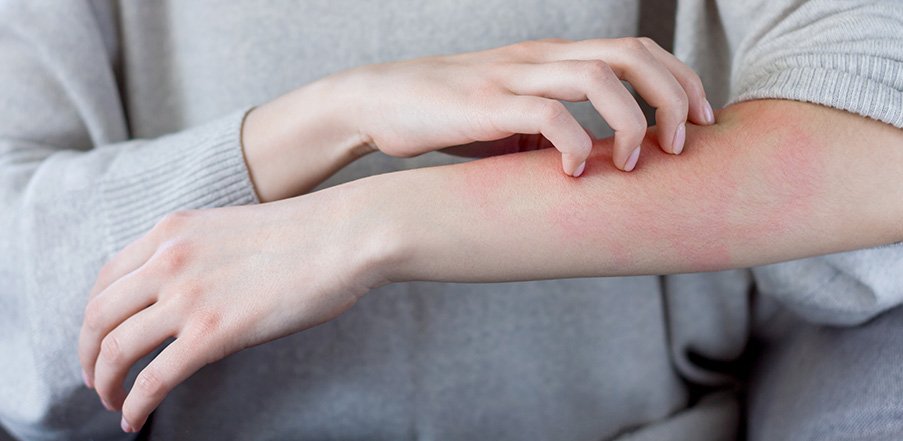What Seniors Need to Know About Atopic Dermatitis: Causes, Effects, and Treatments
Atopic Dermatitis is a chronic skin condition that causes dry, itchy, and inflamed skin. While it’s often linked to children, Atopic Dermatitis also affects older adults, causing discomfort and reducing quality of life if not managed properly.
Understanding Atopic Dermatitis Atopic Dermatitis is a form of eczema that leads to inflammation of the skin, often due to a combination of genetic and environmental factors. The condition typically results in patches of dry, red, and scaly skin. In older adults, the symptoms can be more widespread and persistent. Unlike allergic reactions, Atopic Dermatitis is not caused by a single allergen but involves an overactive immune response that leads to skin barrier dysfunction. Because the skin becomes less effective at retaining moisture with age, seniors are especially vulnerable to flare-ups of Atopic Dermatitis.
How Atopic Dermatitis Affects Seniors For seniors, Atopic Dermatitis can present unique challenges. Thinning skin and decreased oil production in older age can make Atopic Dermatitis more severe. Itching may be intense, leading to broken skin, bleeding, or secondary infections. Additionally, Atopic Dermatitis can disrupt sleep and contribute to anxiety or depression in the elderly. Some medications commonly taken by older adults can also worsen Atopic Dermatitis symptoms. Recognizing the signs early and getting proper care is critical to managing the condition effectively in this age group.
Treatment Options for Atopic Dermatitis in Older Adults There are several treatment approaches available for managing Atopic Dermatitis in seniors. First-line treatments often include fragrance-free moisturizers applied multiple times daily to keep the skin hydrated. Topical corticosteroids can reduce inflammation during flare-ups, while non-steroidal creams like calcineurin inhibitors may help in sensitive areas. For severe or persistent cases of Atopic Dermatitis, doctors might recommend light therapy or newer biologic drugs. Older adults should always consult with a dermatologist to ensure treatments do not interfere with other medications.
Lifestyle Tips to Ease Atopic Dermatitis Symptoms Managing Atopic Dermatitis also involves lifestyle adjustments. Seniors should avoid hot showers, harsh soaps, and wool clothing, which can aggravate symptoms. Using a humidifier, especially in dry climates or heated indoor environments, can prevent skin from drying out. Diet may also play a role—some people with Atopic Dermatitis notice improvements when reducing dairy, gluten, or processed foods. Identifying and avoiding triggers, such as stress or allergens, can significantly help in keeping Atopic Dermatitis under control.
When to See a Doctor for Atopic Dermatitis Although Atopic Dermatitis is manageable, seniors should seek medical attention if symptoms worsen, do not improve with over-the-counter products, or if infections develop. Chronic scratching can lead to skin thickening or open wounds, which may require antibiotics or specialized care. A healthcare provider can provide an accurate diagnosis, rule out other conditions like psoriasis or contact dermatitis, and tailor a treatment plan suited to a senior’s specific needs. Continuous monitoring helps in preventing complications related to Atopic Dermatitis.
Living Well with Atopic Dermatitis While Atopic Dermatitis can be persistent, seniors can still enjoy a good quality of life with the right care. Staying informed, maintaining good skin hygiene, and working closely with healthcare providers can go a long way in reducing flare-ups. By managing triggers and using appropriate treatments, older adults can minimize the discomfort caused by Atopic Dermatitis. Remember, early intervention is key—addressing symptoms sooner rather than later helps prevent long-term skin damage and improves daily comfort.
